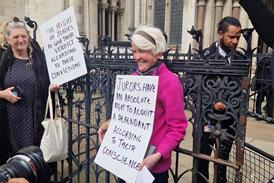A judge has rejected the argument that defendants in a civil claim over tax advice were under any duty to flag up a service error by their opposite number.
The claimant in Higgins & Ors v ERC Accountants & Business Advisers Ltd had failed to validly serve their case as they had not served the claim form.
Amongst arguments about whether the claim form had in fact been served previously, the claimant’s solicitors, from national firm TLT LLP, suggested the defendants were ‘taking advantage’ of any mistake they might have made.
His Honour Judge Pelling QC, sitting in the High Court, clarified that the mistakes of non-service of the claim form were not trivial and that the claimant solicitors had failed to take the ‘most basic’ step in civil litigation. He rejected the idea that defendant solicitors were under a duty to correct the errors, even if they knew or suspected errors had been made.
‘In my view the defendant’s solicitors would be failing in their duty to their clients if they failed to take all steps legitimately available to them to enhance their client’s chances of succeeding in such a defence,’ said Pelling. ‘I cannot see therefore how it can be credibly asserted that the defendants’ solicitors were under some form of obligation to remind C’s solicitors to serve the claim form.’
The case arose out of a tax mitigation scheme allegedly devised by the defendants and implemented by the claimant on their advice. There was a further allegation of fraud.
After a series of extensions, the deadline for the service of the claim form was set for 19 March this year. Defendant solicitors received a letter by that date with a copy of the particulars of claim but not a claim form. On 31 March, defendant solicitors wrote to say the claim form was not served and was no longer valid.
The claimant’s solicitors argued that the claim form had been included in correspondence sent the previous July, but the judge found this was sent only as a ‘protective measure’ to meet limitation deadlines. They did not ask the defendants whether they had instructions to accept service or whether they were prepared to accept service by email.
Pelling added that the failure to serve a court-sealed copy of the claim form and response pack proved the claimant’s solicitors were not attempting to serve the claim form under cover of the July letters.
Provisionally, he struck out the current claim and declared the claim form had not been served in time. He made no conclusion on whether the claim was statute barred and invited further submissions on the form of the order he should make.


















![David Lester (senior partner at Blythe Liggins), Darryl Barnes, Jagdeep Sandher (head of dispute resolution at Blythe Liggins)[4]](https://d1d8vslyhr7rdg.cloudfront.net/Pictures/274x183/4/2/8/116428_davidlesterseniorpartneratblytheligginsdarrylbarnesjagdeepsandherheadofdisputeresolutionatblytheliggins4_981603_crop.jpg)





15 Readers' comments